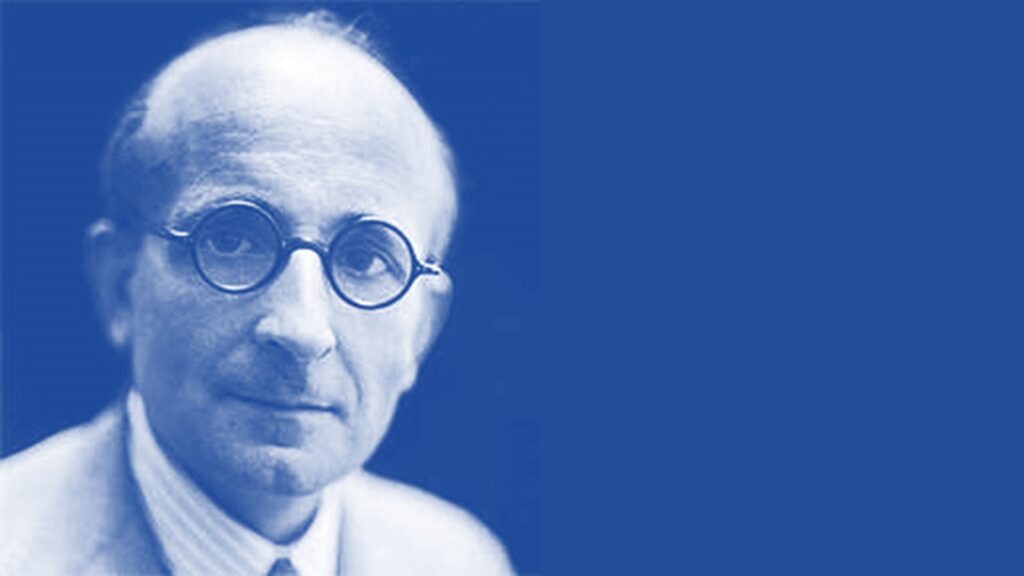On 10 March 1941, less than a year after putting forward the demand for Pakistan, Quaid-i-Azam Muhammad Ali Jinnah addressed the students at the Muslim University Aligarh. The address was nothing less than a lecture on political science and remains, possibly, one of the most underrated speeches in the political literature of the world. Jinnah tried to show that the existing methods of democracy had failed in Europe, and hence there was a need for discovering new methods. One of the passages he quoted was from The World’s Design (1938) by Salvador de Madariaga.
Who was this author? Let’s get into this before we look at the passage Jinnah quoted from him.
Salvador de Madariaga y Rojo was a Spanish diplomat, writer and historian, who spent an active career trying to spread peace and liberal values. He played an active role in the creation of the European Union afterwards. He also a co-founder of the College of Europea, was nominated three times for Nobel Prize in literature and nine times for Nobel Peace Prize, and received the Charlemagne Prize for work done in the service of European unification. He was born in Spain in 1886 and died in Switzerland in 1978 at the advanced age of 92. His daughters Isabel Margaret de Madariaga and Nieves Mathews were academic celebrities in their own right.
Here is one of the missed opportunities of our diplomacy and academics in making bridges with the outside world. Madariaga was still alive in 1976, when we celebrated the centenary of Jinnah and invited so many international scholars to participate in various manners. We do not know if anybody contacted Madariaga. In fact, he lived for thirty-one years after the birth of Pakistan, but it is unlikely that we ever informed him that his ideas hold such an important place in the political legacy of this country.
How could we? Our intelligentsia had failed to learn about this legacy themselves. Therefore, let’s not blame this only on those who were at the helm of affairs in Pakistan. The failure is not only theirs but also ours, as citizens. It is for the citizens to learn about their intellectual heritage and then make the best use of it. The admirers and disciples of Madariaga are still there in the world, and we can still start the work of making the kind of bridges that must exist between us and the like-minded people in the world outside.
So, let’s first understand how the ideas of Madariaga are relevant to us even today. The following is the passage Jinnah quoted from him:
Great Britain is a natural democracy and therefore it reveals in the contradictions and anomalies of which life is so fond. Though democracy, it is in fact ruled by an aristocracy; though equalitarian in law, it is by instinct sensitive to social differences; though parliamentarian, its Parliament is under the sway of the Government in far stricter way than is the case with any other Parliament in the world; finally, England possesses the most self-effacing and disciplined but the most powerful Civil Service a democracy has ever known.
The success of the British democracy was at its acme in the years that lapsed between 1879 and 1914. These years are crucial in the development of so-called English ideas and political ways all over the world. The world overlooked only one detail: that the success of British democracy was due to the fact that it was governed by a leisured and disinterested aristocracy left over from less democratic days.
Liberal democracies sprang up everywhere in imitation of this self-ignorant and absent-minded success. Most of them resembled the English-Liberal democracy as a Christmas tree resembles a tree in the forest: instead of roots, a piece of dead wood, a written constitution; instead of pine-cones, artificial lights reflected by the tinsels of rhetoric and little coins of chocolate for a childlike electorate. Save in a few cases which can be counted with the fingers of one hand these democracies have, of course, all failed. They took over the forms but not the substance of British democracy; how could they take over this substance which was the very character of the people they were imitating? By 1914, most of them were entering into the period of disenchantment. To their discomfiture, the war added imperialist and socialist ferments.
There are a few important points in this passage, which have become even more relevant with the passage of time. These will be discussed in our forthcoming online course, New Democracy: Political Science for the citizens, and might be shared as an embedded video on this page.
